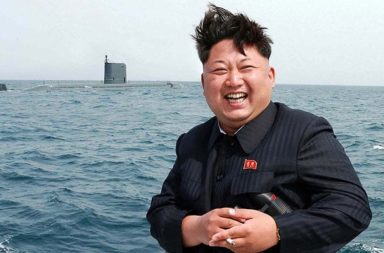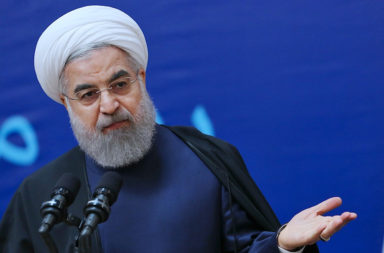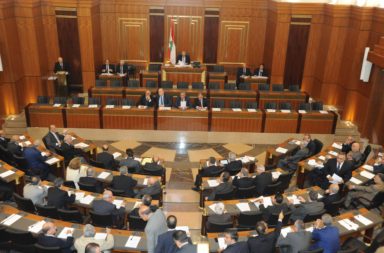Iran held a military exercise to test its missile and radar systems just one day after US President Donald Trump imposed sanctions on Tehran for its most recent ballistic missile test.
- These sanctions are the first of the Trump Administration.
- Sanctions will target individuals and entities linked to missile programme.
- US and Iran argue on opposite sides as to whether the missile tests are in violation of UN resolution.
- Missiles tested have 2,000km range.
Diplomatic relations between Washington and Tehran have taken a nose dive since Trump took office last month after he promised to take a hard line over perceived Iranian belligerence toward the US and its allies. Just hours after the sanctions were announced did new Pentagon chief James Mattis say that Iran was “the single biggest state sponsor of terrorism in the world”.
US officials say these sanctions, the first of Trump’s presidency, are aimed to hinder Iran’s weapons procurement network in Lebanon and China. Trump has unfortunately but predictably not refrained from using Twitter to emphasise his feelings:
Iran is playing with fire – they don’t appreciate how “kind” President Obama was to them. Not me!
— Donald J. Trump (@realDonaldTrump) February 3, 2017
Iran has been formally PUT ON NOTICE for firing a ballistic missile.Should have been thankful for the terrible deal the U.S. made with them!
— Donald J. Trump (@realDonaldTrump) February 2, 2017
“Claims made by US President Donald Trump’s National Security Advisor are baseless, repetitive and provocative,” Iranian foreign ministry spokesman Bahram Ghasemi said, quoted by state news agency IRNA.
The sanctions are in response to Iran testing a medium range ballistic missile and for its support of Yemeni rebels who besieged a Saudi frigate earlier this week. These medium range missiles can reach distances of 2,000km, sufficient to attack Israel or US bases in the Gulf region.
Iran has said that the military exercises were aimed at showing their “complete preparedness to deal with the threats” and “humiliating sanctions” from Washington.
“Different types of domestically produced radar and missile systems, command and control centres, and cyber warfare systems will be used in this exercise,” the Revolutionary Guards’ website said.
These new sanctions do not mean that Washington has moved away from commitments it has made to lift restrictions over Iran’s nuclear programme, according to US officials. However, Trump has made no secret of his contempt for that position which Obama approved in 2015 – officials have said that these sanctions would not be the last.
Iran’s reaction
They have reacted angrily, vowing to enforce “legal limitations” on Americans that they say are involved in creating and supporting “extreme terrorist groups”.
Iran unmoved by threats as we derive security from our people. We’ll never initiate war, but we can only rely on our own means of defense. pic.twitter.com/TxlSEL8rjj
— Javad Zarif (@JZarif) February 3, 2017
We will never use our weapons against anyone, except in self-defense. Let us see if any of those who complain can make the same statement. pic.twitter.com/xwGquvqLvb
— Javad Zarif (@JZarif) February 3, 2017
“In response to the new move by the United States of America and as a reciprocal action, (Iran) will impose legal limitations for some American individuals and companies that have had a role in the creation and support of extreme terrorist groups in the region,” the foreign ministry said. It said it would publish a list of names later.
US intelligence networks are perennially examining and scrutinising Iran’s networks, looking for any evidence of extremist funding and advanced weapons procurement. Mattis, however, said Washington has no immediate plans to increase its military presence in the region.
National Security Adviser Michael Flynn insisted the missile test was in defiance of UN Security Council Resolution 2231. But Iran says that their missiles do not breach UN resolutions because they are for defensive purposes only and not designed to carry nuclear warheads. Foreign Minister Mohammad Javad Zarif said that Iran would “never initiate a war”, despite facing threats, “but we can only rely on our own means of defence.”
Defense, intelligence officials caution White House on terrorist designation for Iran’s Revolutionary Guard https://t.co/WUJ1STlOiv
— Washington Post (@washingtonpost) February 9, 2017
This missile row is just one of a plethora of issues tainting relations between the US and Iran. Trump’s immigration ban includes Iran as one of the seven majority Muslim countries targeted causing mayhem worldwide.




